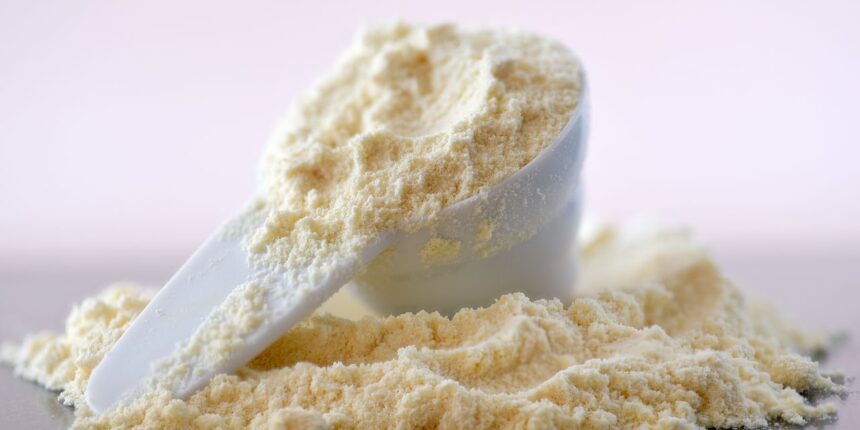Scroll through social media, and it won’t be long before you stumble on colostrum supplements—a buzzy nutrition trend that makes big claims and leaves us with even bigger questions. Kourtney Kardashian Barker is the latest celeb to capitalize on the craze: Her wellness brand, Lemme, has introduced a new line of colostrum gummies purported to support gut health, promote healthy digestion, manage bloating, and enhance “full-body wellness.”
Made from the milk-like substance secreted in late pregnancy and the first few days of breastfeeding, colostrum—normally only consumed by infants and other baby mammals, like calves—is being touted as a magic bullet for adults. Companies claim a wide range of health benefits, from improving your skin to regulating digestion (looking at you, Kourtney), and some even say it boosts your immunity and speeds up post-workout recovery. Sounds great, sure, but does the research follow in line? We asked nutrition, lactation, and GI experts to break it down.
What exactly is colostrum, and why are people so into it now?
If you’re stuck on the fact that colostrum is a precursor to breast milk, let’s clear something up (and hopefully put your mind at ease in the process): You’re not ingesting a human bodily fluid when you take a colostrum supplement. While mammals of all kinds (humans included) produce colostrum to meet the nutritional and developmental demands of their offspring, the stuff you see in commercial products is bovine colostrum—colostrum that comes from cows. (For clarity, however, we’ll just refer to it as “colostrum” here.) In most cases, the supplement form is sold dried or in capsules rather than as a liquid.
Compared to the milk that comes later, colostrum is thicker and more concentrated. It’s especially rich in nutrients that reduce infection risk and gut inflammation in newborns, like prebiotics, as well as enzymes and proteins with antibacterial and antiviral properties, like lysozyme and lactoferrin, Jennifer T. Smilowitz, PhD, lactation education counselor and assistant professor in the department of nutrition at the University of California, Davis, tells SELF. This isn’t an accident: At birth for both humans and cows, the gut is slightly permeable, which can increase the potential for infection and inflammation—“so colostrum fed in the first few days of life helps fortify” it, Dr. Smilowitz says.
Bovine colostrum also contains the same helpful nutrients as cow’s milk—and more, Cara Harbstreet, MS, RD, of Street Smart Nutrition, tells SELF. That includes fat-soluble vitamins A, D, and E, plus important minerals like calcium, iron, zinc, and magnesium. Some, like IGF-1, which helps bones and tissue develop normally, actually exist in higher concentrations in the colostrum.
Read the full article here



